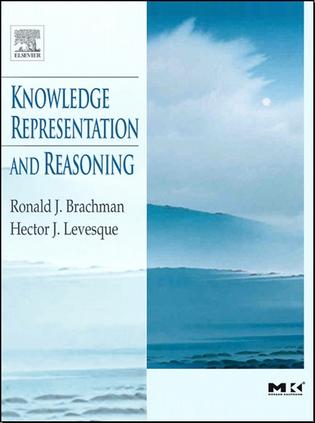Ron Brachman has been doing influential work in knowledge representation since the time
of his Ph.D. thesis at Harvard in 1977, the result of which was the KL-ONE system, which
initiated the entire line of research on description logics. For the majority of his career he
served in research management at AT&T, first at Bell Labs and then at AT&T Labs, where
he was Communications Services Research Vice President, and where he built one of the
premier research groups in the world in Artificial Intelligence. He is a Founding Fellow of the
American Association for Artificial Intelligence (AAAI), and also a Fellowof the Association for
Computing Machinery (ACM). He is currently President of the AAAI. He served as Secretary-
Treasurer of the International Joint Conferences on Artificial Intelligence (IJCAI) for nine
years. With more than 60 technical publications in knowledge representation and related
areas to his credit, he has led a number of important knowledge representation systems efforts,
including the CLASSIC project at AT&T,which resulted ina commercially deployed systemthat
processedmore than $5 billion worth of equipment orders. Brachman is currently Director of
the Information Processing TechnologyOffice at theU.S.Defense AdvancedResearch Projects
Agency (DARPA), where he is leading a new national-scale initiative in cognitive systems.
Hector Levesque has been teaching knowledge representation and reasoning at the Univer-
sity of Toronto since joining the faculty there in 1984. He has published over 60 research
papers in the area, including three that have won best-paper awards. He has also co-authored
a book on the logic of knowledge bases and the widely used TELL–ASK interface that he
pioneered in his Ph.D. thesis. He and his collaborators have initiated important new lines of
research on a number of topics, including implicit and explicit belief, vivid reasoning, new
methods for satisfiability, and cognitive robotics. In 1985, he became the first non-American
to receive the Computers and Thought Award given by IJCAI. He was the recipient of an
E.W.R. Steacie Memorial Fellowship from the Natural Sciences and Engineering Research
Council of Canada for 1990–1991. Hewas also a Fellowof the Canadian Institute for Advanced
Research from 1984 to 1995, and is a Founding Fellow of the AAAI. He was elected to the
Executive Council of the AAAI, and is on the editorial board of five journals. In 2001, Levesque
was the Conference Chair of the IJCAI-01 conference, and is currently Past President of the
IJCAI Board of Trustees.
Brachman and Levesque have beenworking together on knowledge representation and rea-
soning for more than 25 years. In their early collaborations at BBN and Schlumberger, they
produced widely read work on key issues in the field, as well as several well-known knowledge
representation systems, including KL-ONE, KRYPTON, and KANDOR. They presented a tutorial
on knowledge representation at the International Joint Conference on Artificial Intelligence in
1983. In 1984, they coauthored a prize-winning paper at the National Conference on Artificial
Intelligence that is generally regarded as the impetus for an explosion of work in description
logics and which inspired many new research efforts on the tractability of knowledge rep-
resentation systems, including hundreds of research papers. The following year, they edited
a popular collection, Readings in Knowledge Representation, the first text in the area. With
Ray Reiter, they founded and chaired the international conferences on Principles of Knowl-
edge Representation and Reasoning in 1989; these conferences continue on to this day. Since
1992, they have worked together on the course in knowledge representation at the University
of Toronto that is the basis for this book.
 Knowledge Representation and Reasoningtxt,chm,pdf,epub,mobi下载
Knowledge Representation and Reasoningtxt,chm,pdf,epub,mobi下载 首页
首页



很不错啊啊
知道了很多心里曾经疑惑但没获得过解答的地方
太烧脑,阶层是可怕的存在
还没看 不错